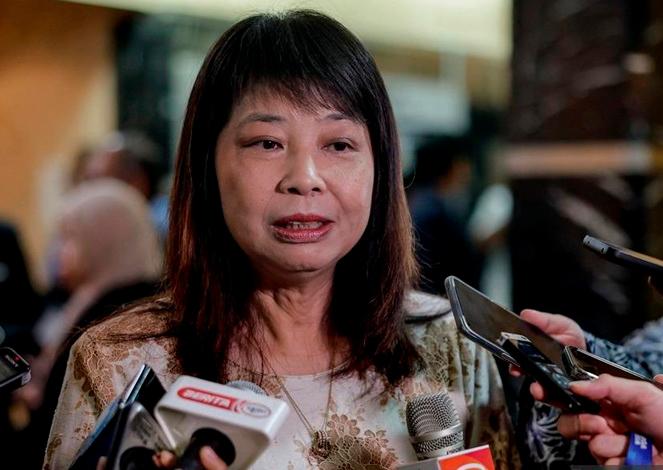KUALA LUMPUR: Asia-Pacific Economic Cooperation (Apec) finance ministers will launch a new roadmap to replace the Cebu Action Plan this October.
Deputy Finance Minister Lim Hui Ying said the new roadmap will define the priorities of the Apec Finance Ministers’ Process (FMP) over the next five years.
“It will identify the FMP’s medium-term initiatives and deliverables towards the achievement of Apec’s Putrajaya Vision 2040 of an open, dynamic, resilient and peaceful Asia-Pacific community,” she said in her keynote speech at Abac-Asean BAC APFF 2025 Southeast Asia Conference: Financing Asean’s Development Priorities today.
She emphasised the need for Asean members to actively participate in Apec discussions and decisions, especially as the forum prepares its new roadmap.
“It is critical for Asean members to work together within Apec to ensure that our common priorities in Southeast Asia are well-embedded in this new Asia-Pacific roadmap and that initiatives in Asean and Apec are consistent with each other and mutually supportive,” she said.
Lim said new business models and technology carry risks that are still not yet fully understood today.
“Enabling their safe and effective deployment would also require legal, policy and regulatory reforms, changes in industry practices and collaborative efforts to educate consumers, industry practitioners and regulators.”
Responding to these challenges and opportunities, she said, will require stronger regional financial cooperation. “At the same time, it will also require closer collaboration between the public and private sectors.”
In this context, Lim said, the Apec and Asean processes have a critical role to play in providing platforms for action among members and for enhanced government and regulatory engagement with the private sector.
She said new business models and rapid advances in technology can help in redesigning finance to better serve micro- small and medium enterprises and marginalised consumers. “These include digital technologies like blockchain, AI and quantum computing. They include new products such as crypto and tokenised assets and digital currencies.”
Meanwhile, Asean-BAC Malaysia chairman Tan Sri Nazir Razak said Asean has long talked about deeper economic integration but progress has been slow or repeatedly delayed.
“Echoing Singapore Prime Minister Lawrence Wong’s remark that the bloc faces its moment of truth, it must step up or risk losing relevance. Unfortunately, we have heard similar words before. I hope this time we really move ahead with integrating our economies,” he said.
Nazir noted that execution has been lacking not only from governments, but also from the private sector. “The private sector has also fallen short. Are we doing the deals we should be doing – in partnerships, mergers and acquisitions, supply chains and trade? I don’t think so.”
He highlighted that intra-Asean trade and investments remain low as a percentage of total trade and investments.
“The surge in regional Asean companies of the late 2000s has slowed. Are we fulfilling our potential in attracting investors to Asean?”
Nazir said the bloc is not trying to model itself after the European Union, noting that Asean functions best through small, concrete steps, not grand, unachievable sound bites. “The good news is that we now have a much clearer understanding of what Asean can and should realistically achieve.”









